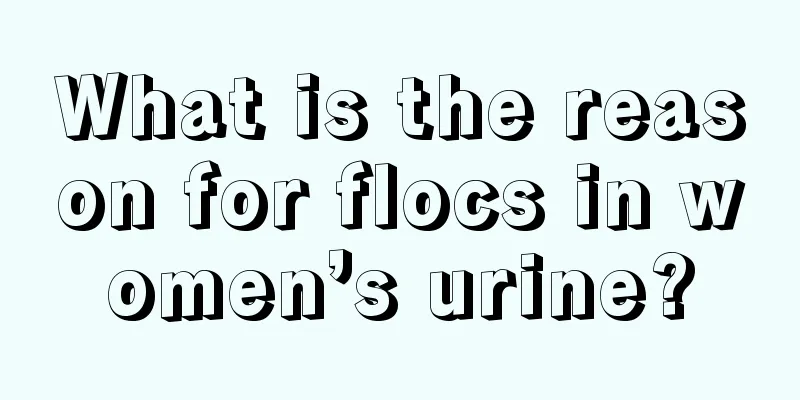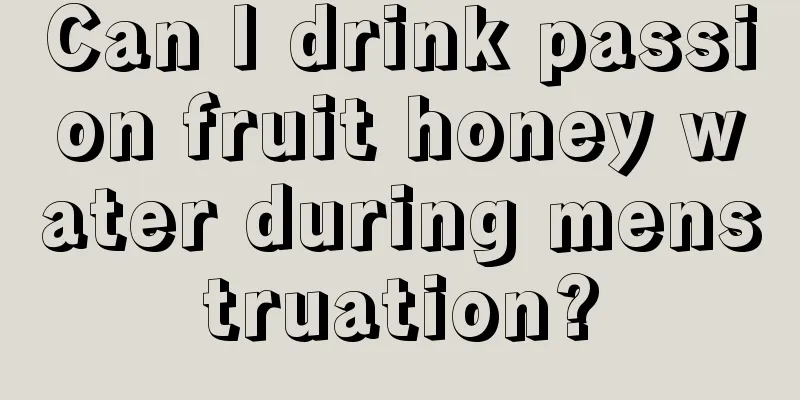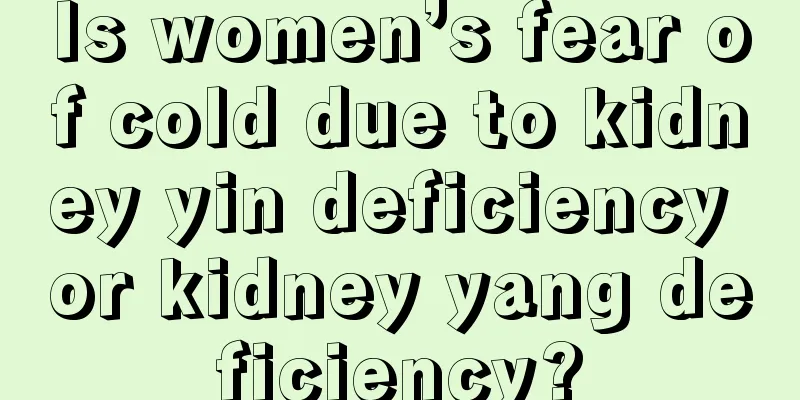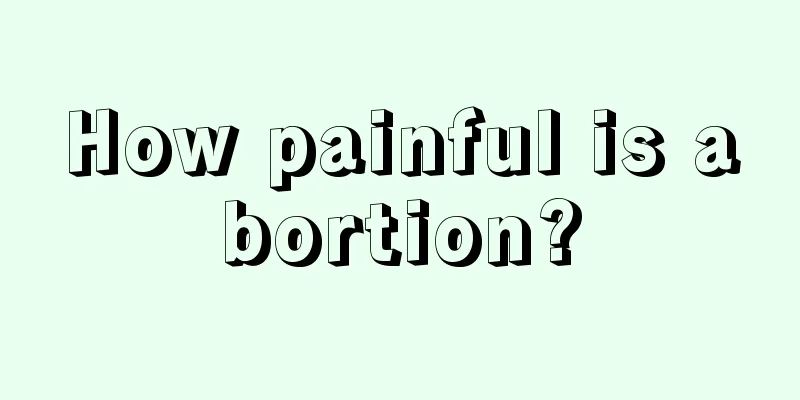What is discrimination?
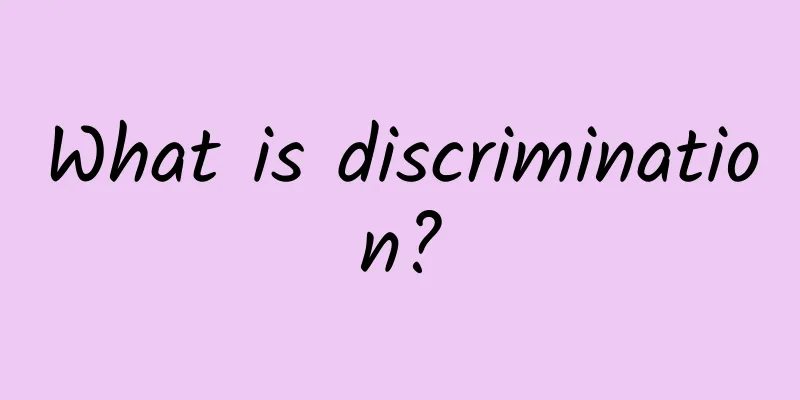
|
Leviathan Press: Whether differential treatment is reasonable or not depends only on whether the evaluation system is established. Reasonable differential treatment is called tailored to the individual, and the opposite is called discrimination. But who should establish such an evaluation system? How to establish it? Should the maximization of collective interests be considered first? Or should the basic needs of individuals be considered first? The answer to this question is bound to be not simple enough. Moreover, when many individuals are classified as a group, this becomes a problem that must be faced. The topic discussed in this article, "discrimination", is more easily translated directly into the Chinese word "辨辨", but such a translation inevitably carries subjective value judgments (although this is not a problem in many contexts, such as when discussing gender discrimination). Therefore, in many places in this article, we will replace it with the word "区别心" to focus on the meaning of the word "differential treatment". What is discrimination? When people make moral choices, they may take into account some considerations that they should not take into account. When it comes to discrimination, we subconsciously think of race or sexual orientation. After all, no one should be prohibited from getting something because they are black or gay. In some cases, age can even be a factor that affects moral decision-making. For example, children are not considered to have the ability to make rational choices and therefore cannot have democratic voting rights. So how do we decide what is fair differential treatment and what is discrimination? What are the criteria for identifying the two? Individualism Some philosophers say that discrimination means disrespect for individuals. "Individuality" is the core of John Stuart Mill's theory, so the "individualism" is largely based on Mill's ideas. "Self-creation" is the core of Mill's utilitarianism. Only by understanding it can we understand the relationship between individuality and discrimination. For Jeremy Bentham, the first generation of utilitarian philosophers, every entity has the same value, whether human or not. This starting point avoids the trap of "moral egoism": because we are equally important, I cannot put my interests above yours. Utilitarianism and liberal philosopher John Stuart Mill (1806-1873). © Literary Hub But the practical consequence of this definition of good is that we are always asked to help others. Sooner or later, we get tired of being dominated, because there is always someone worse off than me and in greater need of help. Centuries ago, people had little opportunity to get involved in the lives of people who lived far away, because travel was expensive and inconvenient. Now, we can influence them directly and have many choices in how to help others. We are morally obligated to help others, but doing so means giving up personal development. If a person has three hours of leisure every night, then in order to maximize the good, he or she is morally obligated to spend this time helping those in need. However, that seems to prevent these people from developing their own life goals and hobbies. I may enjoy listening to jazz and think it builds my character. When I choose to volunteer at a homeless shelter, I don't have time to listen to jazz. After all, we have already assumed that I have met my survival needs, and we are talking about leisure time here. Utilitarianism claims that we should maximize good, so it requires us to help the homeless instead of pursuing our own hobbies. But this does not mean that I should sacrifice my personal development for others. In utilitarianism, everyone is equal. The basic needs of the homeless are more important than my hobbies. We should maximize happiness, so we need to prioritize the needs of others and consider our own desires second. Mill saw a way to solve this problem: he believed that personality is like music and virtue, which is an integral part of individual growth. But when he went on to elaborate on the exact details of individual growth, he emphasized "human experience". In this sense, Mill's individualism has a profound anthropocentric meaning, that is, human happiness is superior to animal happiness. Individuality refers to the ability to know and then act. Mill believed that this was an ability that non-human animals did not have. Some people claim that animals can also be defined as individuals. For example, moral philosopher Tom Regan once said that if we look at it from a biographical perspective, animals are indeed "subjects of life", that is, they are not just living, but also experiencing life. In other words, animals also need to "become" animals. Most animals have a very different way of life from plants like trees. Animals experience things, and those things that satisfy their needs are meaningful to them. Biographical lives can vary widely in quality. After all, the subject of life is not just a tree with needs, it has wants and desires. Some things may be objectively important to the tree, such as its need for sunlight and water. But these things are not important to the tree itself, which does not have a subjective life. Animals have different needs than we do, but they also have desires. These needs form the basis of rights, which in turn form a moral code. Just like humans, animals have a right to live or a right to be free (ban factory farming). Reagan's view is unsatisfactory. Given our ability to redefine the scope of moral norms, why add animals into our definition halfway? In the latter case, we are likely to see animals as additions to ourselves. The problem with this approach can be seen in the women of WASPI (Women Against State Pension Inequality, a British organization founded in 2015 to protest against gender inequality in the establishment of the state pension fund system, translator's note). These women claim that the British government manipulates women's pensions and that their gender-based treatment constitutes discrimination. They raise issues such as the fact that women who quit their jobs to raise children receive a much lower total pension than men. The organization's main goal is to draw attention to the unfair impact of changes to the state pension age (SPA) on women. The system was originally designed to cater to the needs of men. It has been adapted to suit the needs of women, but it continues to disappoint because it is not adapted to the needs of both sexes when new problems arise. So it is much easier to build a new system that works for everyone than to reform it mid-stream. The way some philosophers have incorporated animals into their anthropocentric theories is, frankly, ridiculous. Kant, for example, was notoriously dismissive of animal morality. Kantian ethics is based on "rationality" - in other words, people are valuable because they are rational. Animals are just experimental fodder. For Kant, people who are mean to animals are immoral because they are likely to be mean to humans. Christine Korsgaard proposed that animals have a certain degree of "minimal rationality" in order to incorporate them into Kantian ethics. She notes that prey animals realize that predators are creatures that move among other objects, and so display a degree of spatial awareness (a kind of rudimentary self-awareness) as they avoid the predator’s field of vision. As a modern Kantian, Korsgaard does not want to relegate nonhuman animals to a moral inferiority position, as Kant did. After all, for Kant, animals are merely props that constitute human practices. But why do animals have to be like humans to be important? We should affirm their value for their own characteristics, not for their similarity to humans. It would be ridiculous to say that women are valuable because they are like men, or that people of color are valuable because they are like white people. In the same way, Joel Marks says, “Just as humans do not need to demonstrate similarity to other animals to prove their intrinsic value, neither do animals.” Why do pigs have to be like humans to be included in the moral scope? Why do women have to be like men? Marks rightly asserts that this statement somehow reverses the relevance: it is not that other animals are important because they are like humans, but that humans are important because we are animals. Rights Theory Nonhuman animals seem to fit the ethical requirements of the rights theory more closely than the personhood theory. Many nonhuman animals, especially those we eat, appear to be sentient. They have obvious needs (such as adequate food) and obvious desires (such as socializing or living independently). They are sentient, conscious beings. Although we cannot be completely sure whether nonhuman animals are conscious, just as we cannot be completely sure whether consciousness exists outside of ourselves. But they appear to be conscious. © NPR In most cases, rights are expressions of desires and needs, and the right to life and the right to be free from violence reflect the desire to survive and avoid pain. So why do we prioritize the rights of human animals over those of nonhuman animals? If rights are expressions of desires and needs, then both human and nonhuman animals have the right to survive—they are both individual units of rights. A person who wants to eat an animal certainly has the right to survive. However, humans can survive without eating meat. And there is a lot of evidence that vegetarianism can be very healthy. But if a human chooses to eat non-human animals, he or she violates the animal's right to life. This view is based on the modern animal rights movement. In most cases, discrimination denies rights, but this should not be generalized. There are several problems with understanding discrimination in terms of rights: First, the rights discussion is not as instructive on moral issues as it seems. Rights seem to be a normative guide for our behavior towards non-human animals. If animals have a right to live, then we should not eat them. But we humans often put our own desires above the rights of animals. However, while meat is not a necessity for humans, it is indeed essential for carnivores like dogs. Does killing chickens to feed dogs constitute discrimination? Roger Scruton gives a similar example of moral ambiguity in his book Green Philosophy: “The gamekeeper must protect the environment and the animals that thrive in it. To protect ground-nesting birds, he must control foxes and badgers. But animal rights activists come in and stop the killing. The game birds flee, the game is taken over by scavengers, and the game becomes a poorly managed mess.” Scruton is blunt in his denial of the viability of animal rights. He is not shy about expressing his feelings on this topic. But he does have a point. © Bali Safari Park Rights-based discussions don’t help us develop a hierarchy of rights. If we claim that all animals have a right to live, how do we manage an ecosystem of predators and prey? Some animals survive by eating other animals. If we prevent prey from hunting because prey have a right to live, we may well be upsetting the balance of the ecosystem. Second, there are theoretical problems with this argument. Does depriving rights necessarily constitute discrimination? When a woman who murders her partner is imprisoned, she may lose her right to freedom. However, this seems to be another example of fairness differentiation. The third problem with this argument is that the anthropocentric foundation of moral rights is shaky. What kind of people should be granted rights? If we only allow humans to have rights, we will face the criticism of anthropocentrism. After all, in the debate over rights, there is no clear standard for what can be considered within the scope of rights. Some people think that only humans have rationality, so only humans have rights. But some animals also have autonomous consciousness, such as chimpanzees. Moreover, only some people are rational. Should infant humans be given only partial moral rights, even though their rationality is not fully developed? A fetus has only the possibility of rationality, since it is unlikely to develop a moral code in the womb. And what about people who are in a long-term vegetative state? Are they no longer worthy of moral consideration? For Joel Feinberg, who has made an influential point in the abortion debate, the possibility of having a right does not directly imply the acquisition of that right. All UK residents over the age of 18 who are not incarcerated have the potential to become prime minister. But there can only be one prime minister. I may have the potential to be a mother, and mothers may have the right to maternity leave. But I cannot arbitrarily ask for maternity leave at work without having children. All of these perspectives we are talking about are trying to borrow human-oriented concepts such as "rights" and "personality" centered on rationality. The theories we are studying here are all based on certain abilities that non-human animals may or may not have, not what they actually do. Sufficiency and necessity Not respecting the personality of some people or denying their rights is a sufficient but not necessary condition for discrimination. For example. Imagine a sexist lawmaker who says women should stay at home. He wants to ban women from “public spaces”, an act that both disrespects women’s individuality and infringes on their liberty. However, this only satisfies the sufficient but not necessary premise of discrimination. The relevance of context These historical accounts of discrimination only scratch the surface of the problem and fail to explain why some current events are wrong. Similarly, circus animal performances are not morally right simply because they are unnatural. Far from it. The naturalistic fallacy Contemporary people’s lives are obviously different from those of our ancestors. But does this mean that urban living is morally wrong? The circus bears were taken from nature into artificial environments, but humans have also undergone environmental migration. We originally hunted and gathered fruit, then began farming, but now live in a mechanized society. We took the bear out of its natural environment, but this is not necessarily wrong. After all, many animals are removed from their environments when things become harmful or dangerous, such as wildfires or natural disasters. Likewise, there is nothing fundamentally wrong with dressing animals—some pets may actually need specific clothing. Canine anti-anxiety shirts can help dogs stay calm through stressful situations like campfire night by hugging them tight. It would also be right to put a life jacket on a dog if the plane crashes into the ocean. The specific circumstances determine the morality of dressing an animal. In these cases, morality depends on context. As we have seen, deprivation of rights may not constitute discrimination, such as a fair differential treatment of a woman who committed a heinous crime. The decision whether it is a discriminatory differential or a fair differential depends on the specific context. A classic example from the Boston Globe is the scandal of priests sexually abusing children and young adults in the Boston area. The Boston Globe linked seemingly isolated cases of sexual abuse to the “mysterious disappearances” of priests in the area who were quickly transferred to other parishes to avoid justice. Like other citizens, Catholic priests certainly have the right to privacy and a quiet life. However, preventing crime takes precedence over protecting privacy. We can see that while there is a hierarchy of rights, those rights are fluid and contextual within the hierarchy. Due to the nature of their crimes and abuse of their authority, the Boston priests lost their right to a private life. But to deny priests privacy simply because they identify as male or Catholic is to focus attention on characteristics that are irrelevant to the issue at hand. The Alien Example To further illustrate this point, consider the possibility that Earth is visited by aliens. To these aliens, humans are the most delicious food. The aliens believe that their telepathic abilities make them superior to human animals, so why don't they eat us? [Bernard Williams makes a similar point in The Human Prejudice]. Well, we might think it's a good thing that aliens have telepathy. We might even envy them. It's not that telepathic abilities themselves are bad, but that these abilities don't determine our moral worth. We still shouldn't be eaten. What matters for morality is the trait or the context, not the ability itself. © FES Connect Telepathy is not the basis of moral values. We have never had this ability and it is of no consequence to us. Our lives have real intrinsic value because we value our lives. A human may not have telepathic abilities, but this has nothing to do with his or her own conscious experience. Deciding to eat a creature because it is not telepathic is discriminatory. So why should we eat animals because they lack rationality? Jeremy Bentham gave a similar example when he said, “The question is not ‘Can they reason logically?’ or ‘Can they talk?’ but ‘Can they suffer?’” When someone argues that women should be confined to the private sphere, they are considering something like sex that has nothing to do with their ability to perform in the public sphere. Similarly, focusing on the number of legs a creature has, its ability to speak, or its ability to live a social life are irrelevant to a moral position. Depending on the context, factors like age may be the basis for judging fair differentiation or discrimination. It is hard to imagine discrimination based on race as a case for fair differentiation. Perhaps given that COVID-19 affects patients of color far more severely than white people, we should prioritize treating patients of color over white patients. While most people would agree that a 10-year-old should not be able to vote, age itself should not be a barrier to justice. This is not to say that it is wrong to consider age per se, but rather whether it is an appropriate and mitigating factor in the context of the problem at hand. How do we determine the relevance of a factor in context? That is the difficulty. Some philosophers say that species is a relevant factor, but for me it is not. Recalling Bentham's words, what I believe is that we should not harm lives that will suffer. Text/medium Translation/Yusuan Proofreading/Rabbit's Light Footsteps Original article/aphilosophersstone.org/how-can-we-define-discrimination-e904351a10fb This article is based on the Creative Commons Agreement (BY-NC) and is published by Yu Suan on Leviathan The article only reflects the author's views and does not necessarily represent the position of Leviathan Editor's Note: There is a very inspiring point of thought in the article for me personally: that is, when it comes to animal rights, why do animals have to have similar characteristics to be considered important? Cows shed tears before being slaughtered, sheep are afraid when they witness their own kind being slaughtered, elephants gather together to mourn the death of their companions, dolphins have a smiling face, etc. - these phenomena are culturally isomorphic to humans, which makes it easy for us to ignore the intrinsic value of the species itself and the specific reference context. In this sense, extreme animal protectionism and anthropocentrism are actually making similar mistakes. Once we think about the boundary issue of human self, we may realize that only when we humans include other species into a community can we obtain the possibility of protecting human "self". |
>>: What skin care products should I use for oily skin? Oily skin care methods
Recommend
How many months should pregnant women take calcium supplements at the latest
After a woman becomes pregnant, her body no longe...
The source of life: revealing the importance of water in the human body
Water is essential for all living things. Differe...
Will abortion cause endometrium thinning?
Many people may not be fully aware of the dangers...
Can I have a medical abortion in three months of pregnancy?
It is not possible to completely abort a baby by ...
Do nipples hurt before menstruation?
Before menstruation, many women will experience n...
Anal swelling during menstruation
When women have their periods, they usually exper...
What is the cause of bacterial vaginitis
Bacterial vaginitis is a mixed infection. Bacteri...
More than 1 billion people in the world lack this vitamin! If this physical examination index is lower than 30, be careful!
When 26-year-old Xiao Zhang (pseudonym) got his p...
What are the dangers of low cholesterol in women?
In life, we often hear that someone has high chol...
Reasons for irregular menstruation
Many times, female friends will experience irregu...
Hundreds of millions of people are lactose intolerant, so why are we still recommending you to drink milk?
There is no need to say much about the benefits o...
Do not ignore coronary microcirculation disorders when suffering from chest tightness and angina pectoris
After the activity, I experienced chest tightness...
Effects of Rubella Virus on Pregnant Women
I believe that many female friends, especially th...
Large gestational sac in early pregnancy
The gestational sac is the initial tissue of the ...
These 6 habits are very likely to induce diabetes! It is recommended to change them in time
Although drinks are good, don’t drink them as wat...

